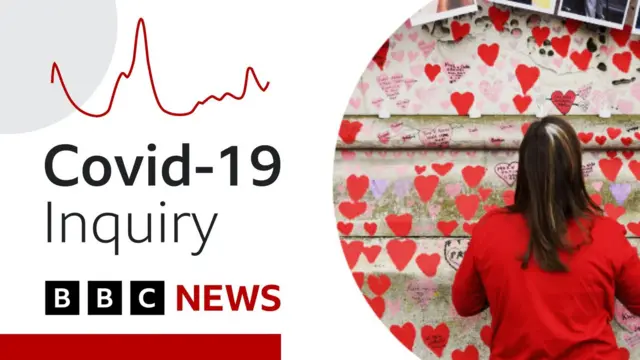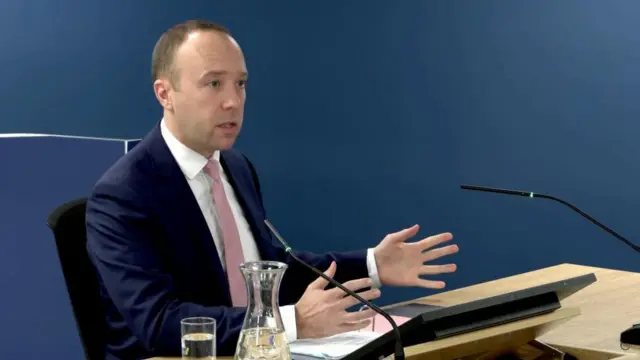An earlier understanding about transmission 'could have made a difference'published at 12:08 GMT 30 November 2023
Back to Hancock's witness statement now.
The inquiry's lawyer says Hancock made the suggestion that the government could have applied a precautionary approach over asymptomatic transmission.
Hancock tells the inquiry that the scientific advice from Public Health England (PHE) during the early pandemic was that there wasn't a need to quarantine people being brought back from Wuhan in China.
He overruled this, Hancock says.
Until April 3, he said decision were taken on the PHE stance that there wasn't asymptomatic transmission.
Hugo Keith KC asks if asymptomatic transmission has been understood sooner, what measures could have been made available by the government?
Hancock replies it would have made a difference to prevention control in healthcare settings.





